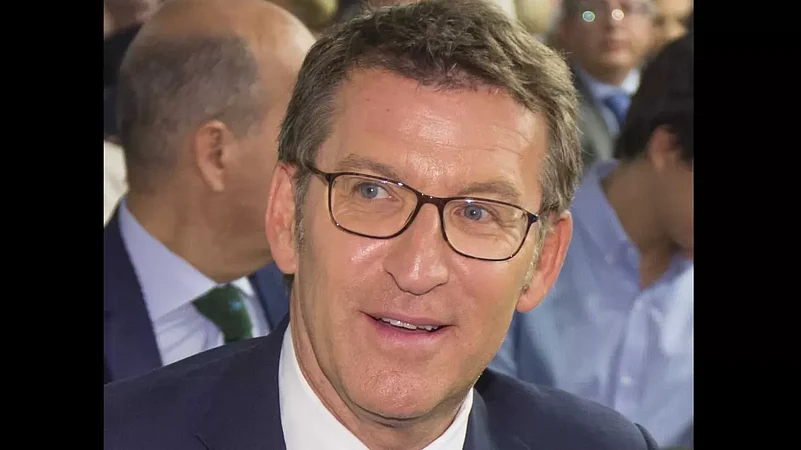With 100% of the votes counted in the national elections, Spain saw a surprise on Monday. The opposition conservative People's Party (PP) which was predicted to secure a majority and form government in polls, failed to secure it's majority although it secured the most number of seats. It was ahead of it's rivals in the Spanish Socialist Worker's Party (PSOE), but could not form the rightwing coalition that many expected and feared.
It was the first time the right wing were expected to return to power since General Franco's rule five decades ago. With the left and right blocs now neck and neck, the country looks at weeks of political negotiations ahead, before a government is put together and a prime minister invited by King Felipe VI, the monarch. Results showed that the PP had won 136 seats, while the PSOE accumoulated 122. The PP's planned coalition partners in the far-right Vox party won 33 seats, a marked decrease from the 52 they won in the last election. The partners of the PSOE, the new far-left Sumar alliance were in fourth place with 31 seats. Early results showed that this would be a tight race, and the final results evinced that it would be a bottleneck to government formation now.
Negotiations over the new government and leadership, along with the horse-trading and politicking by rival blocs is expected to follow intensely after parliament convenes on August 17. The Spanish king, Felipe VI will invite the PP's leader Alberto Núñez Feijóo to try and form his government and take the prime ministership then. For many Spaniards, it is history repeating itself. Back in 2015, the PP were in a similar position, and then party leader, Mariano Rajoy had to decline the King's invitation, as he could not muster the necessary support to take office.
Current Prime Minister Pedro Sanchez will be asked to muster support by the King in the event that Feijóo cannot muster support, and will be asked to do the same. However, given how tightly the race panned out, it is doubtful whether Sanchez will be able to do the same this time. Then, by Spanish law, if no candidate can secure the required majority for prime ministerial office within two months, a new vote will be required. This had led to much criticism as many question whether the country can afford the months of political instability and lack of leadership that is expected to follow.
Feijóo thanked those who had helped his party to victory with the most seats in the elections. He sought to allay fears about instability, asserting that he would to try to form a government as soon as possible.
With the economy coming up as the single biggest issue for citizens in opinion polls, he is well aware that he cannot afford uncertainty, saying
“Our duty now is to stop a period of uncertainty opening up in Spain,” he said. “As the candidate for the party that won the most votes, I believe my duty is to open up the dialogue as soon as possible and to try to govern our country in accordance with the election results and the election victory.”
Other party leaders also published their statements, thanking people for their support and re-affirming their own victories while trying to posit that their opponents had failed. However, for now, uncertainty and political gamemanship will loom large over the Spanish mainland.





















.png?w=200&auto=format%2Ccompress&fit=max)




